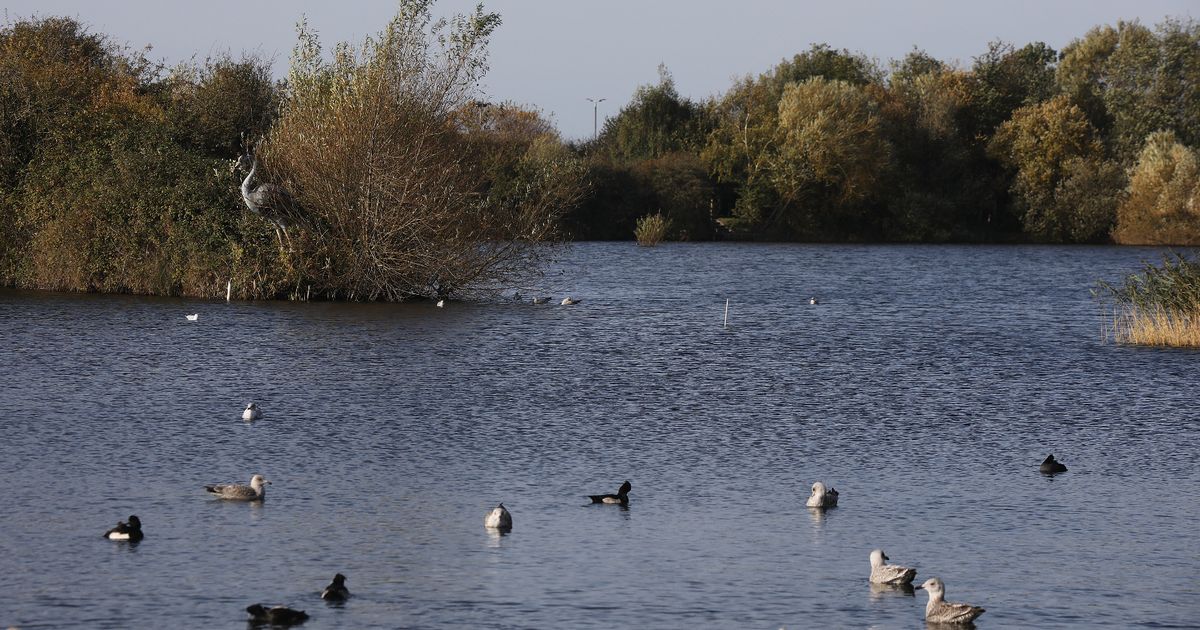Experts said the ‘highly contagious virus’ can be fatal if left untreated AllPets Vets in Prestatyn said there appeared to be an outbreak in the Brickfield Pond area(Image: Ian Cooper/North Wales Live)
AllPets Vets in Prestatyn said there appeared to be an outbreak in the Brickfield Pond area(Image: Ian Cooper/North Wales Live)
Three veterinary practices have issued warnings to dog owners after several cases of a potentially deadly virus were confirmed.
Several dogs have required treatment after cases of parvovirus were confirmed in North Wales, and local vet practices are urging all pet owners to take steps to avoid any risk of them catching the deadly illness. The outbreak is affecting areas such as Rhyl and Wrexham.
The virus damages cells inside the small intestines of a dog, which can affect its ability to absorb the necessary nutrients. This means that dogs, including puppies, will become very weak. For the biggest stories in Wales first, sign up to our daily newsletter here
In May, the heartbroken owner of an adorable Rottweiler puppy who died after testing positive for a deadly canine virus warned others.
Megan Aithwaite took in the little pup, named Kaizer, after an appeal was made to find loving homes for an unexpected litter. The 19-year-old told Teeside Live, that Kaizer fell ill, suffering from sickness and diarrhoea, and was appearing lethargic.
Kaizer was kept under observation but his condition further deteriorated and the heart-breaking decision was made to euthanise the much-loved pup.
Parvo is easily passed on to dogs that aren’t up to date with their vaccinations from infected dogs or their poo.
Other animals such as cats are also susceptible to catch parvo and we can even spread the disease from our hands and clothes. However, humans can’t catch parvovirus.
Parvo can be hard to pick up on as the symptoms are similar to many other infections. If you suspect that your dog has any symptoms of the virus, take them straight to the vets to be checked out, as parvovirus can’t be treated at home.
Three vets have issued warnings to pet owners.
AllPets Vets in Prestatyn said: “There appears to be an outbreak of parvovirus in the Brickfield Pond area of Rhyl – we are aware of nine cases currently.
“Parvovirus is a highly contagious virus. If left untreated, it can be fatal.
“Parvovirus is especially serious in unvaccinated dogs and puppies less than six months old because their immune systems aren’t as well developed and so are less able to fight the virus.
“It is really important to make sure that your dogs are up to date with their vaccines!
“Symptoms of parvovirus in dogs can be: lethargy, vomiting, severe bloody diarrhoea, loss of appetite, fever, weight loss.
“If you are worried that your dog may have parvovirus, it is important to contact your vet as soon as possible.”
Park Issa Vets in Oswestry said: “There has been an outbreak of parvovirus in the Wrexham area.
“Please ensure your dogs are up to date with their vaccinations, or contact us to double check when they had their last routine booster.
“Though any age of dog can be at risk, it is especially important to be cautious with young puppies at this time and call us if you have any concerns.”
Vets4Pets in Chester also issued a statement. A spokesman said: “You may already be aware from social media that there is currently an outbreak of Parvovirus in the Wrexham area.
“Canine Parvovirus, commonly known as parvo, is a highly contagious viral disease that can be life threatening to your dog. It is most likely to infect puppies up to six months of age, but can affect older dogs as well, especially dogs that have never been vaccinated or are not up to date with their annual vaccinations. Unfortunately outbreaks are still commonly reported in the UK, and a parvo infection can kill.
“Parvo is spread by direct contact with saliva or faeces of an infected animal; humans can also carry the disease on their hands and clothing from one dog to another. Usually dogs will have severe vomiting and diarrhoea which is often bloody (haemorrhagic) and this will lead to dehydration. Anorexia, depression and fever are also common signs.
“Dogs with parvo will require hospitalisation, often for many days, and will be put on a drip to correct dehydration. Antibiotics will be given to prevent any secondary infections as well as antiviral medication if available.
“Unfortunately a lot of dogs with parvo won’t survive, even with intensive supportive treatment, which is why it is so important to prevent the disease with vaccination in the first place.
“We have not had any cases of Parvo in our practice for a long time, however, as we are nearby to Wrexham and we have lots of clients from Wrexham, we have put some measures in to place to avoid any spread.”
Your dog will have a better chance of survival the sooner you take them to the vets for help.
If your dog does have parvo it needs to be treated by a vet with the animal staying with them until it responds to the treatment. When your dog is well enough they will be allowed to come home.
